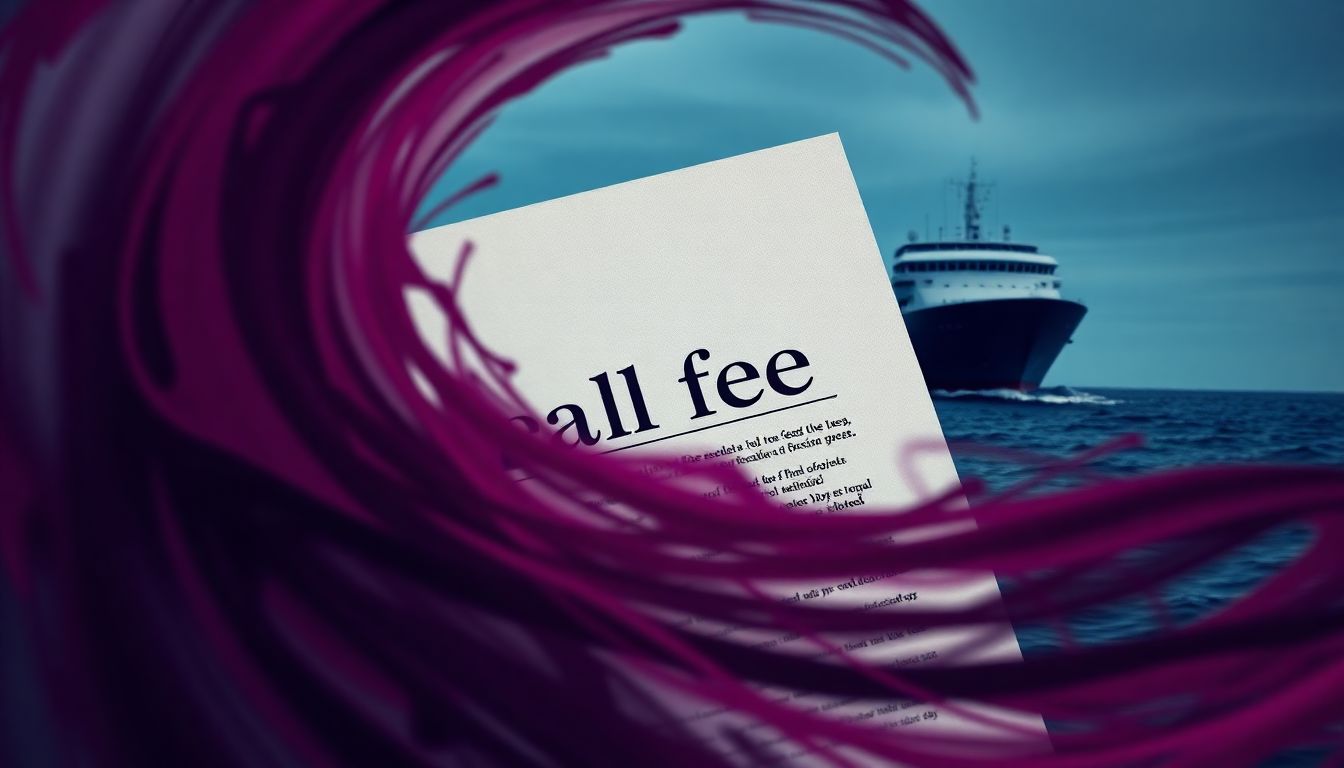
Offshore accidents can lead to significant injuries and emotional distress. Navigating the related legal process can feel overwhelming, especially when it comes to understanding legal fees. This guide aims to clarify what you can expect in terms of costs when pursuing a claim.
The High Stakes of Offshore Accidents
Accidents at sea or on oil rigs can be severe. Victims often face major medical bills, loss of income, and long-term rehabilitation. Legal representation becomes essential not just for compensation, but for protecting rights in a complex legal landscape.
The Unique Challenges of Offshore Legal Cases
Offshore injury claims can involve multiple jurisdictions, maritime laws, and various stakeholders. This complexity often results in higher legal costs. Many factors come into play, making it vital to grasp how these costs accrue.
This Guide's Purpose: Demystifying Offshore Accident Legal Fees
Understanding legal fees is crucial for anyone filing a claim. This guide will simplify various aspects, from fee structures to hidden costs, so you can make informed decisions.
Understanding Different Fee Structures
Contingency Fees: A Common Approach in Offshore Injury Cases
- No upfront costs: Attorneys only get paid if you win.
- Percentage-based: Typically, lawyers take between 25% to 40% of the settlement.
- Risk-sharing: This model motivates lawyers to work harder on your behalf.
Hourly Rates: Transparency and Predictability
- Pay as you go: You are billed based on the time spent on your case.
- Varied rates: Attorneys may charge anywhere from $150 to $500 per hour, depending on experience and location.
- Budgeting: This structure allows you to estimate total costs more easily.
Hybrid Fee Arrangements: Combining Contingency and Hourly Rates
- Mixed approach: Some lawyers may offer a lower hourly rate combined with a reduced contingency fee.
- Flexibility: This can be a good option if you anticipate high legal costs but also expect a decent settlement.
Factors Influencing Offshore Accident Legal Costs
The Severity of Injuries and Damages
- Higher stakes: More serious injuries often lead to increased costs.
- Longer cases: Complicated injuries may require longer case resolution times.
The Complexity of the Case and Jurisdiction
- Multiple laws: Different laws can apply based on where the accident occurred.
- Expert opinions: Complex cases may require expert testimony, raising costs.
The Experience and Reputation of the Legal Team
- Cost vs. quality: Well-regarded attorneys may charge higher fees but often deliver better results.
- Specialization: Lawyers with experience in maritime law often command higher prices due to their specialized knowledge.
Navigating Hidden Costs and Unexpected Expenses
Expert Witness Fees and Testimony Costs
- Additional costs: Retaining experts can significantly raise legal expenses.
Court Filing Fees and Other Administrative Costs
- Standard fees: Filing a lawsuit often involves various charges, which can add up.
Travel and Accommodation Expenses for Legal Proceedings
- Location matters: If your case is in a different jurisdiction, travel expenses can accumulate quickly.
Strategies for Managing Legal Costs in Offshore Accident Claims
Thoroughly Researching Potential Legal Representation
- Know your options: Explore various attorneys to find someone within your budget who meets your needs.
Negotiating Fee Agreements with Attorneys
- Be proactive: Many attorneys are open to discussions about fees. Don’t hesitate to ask.
Understanding Insurance Coverage and its Limitations
- Policy review: Knowing what your insurance covers can help reduce out-of-pocket expenses.
Seeking Compensation for Legal Fees
Recovery of Legal Fees as Part of a Settlement or Verdict
- Included in damages: Some settlements may allow for recovery of legal costs if won.
The Role of Insurance in Covering Legal Costs
- Determine coverage: Many insurance policies provide for legal fees in certain situations.
Understanding the Implications of Losing a Case on Legal Fees
- Cost considerations: Losing may mean paying your own legal fees, underscoring the importance of a strong case.
Conclusion: Protecting Your Rights and Resources After an Offshore Accident
Key Takeaways: Planning for Legal Costs
Understanding the complexities of legal fees is crucial. Being informed can save money and protect your rights.
Actions to Take After an Offshore Accident
- Seek medical attention: Your health should come first.
- Document everything: Gather evidence and keep records related to the accident.
Resources for Further Assistance
Consult with local organizations or legal aid services for additional support in navigating your case. Always prioritize informed choices and thorough research when choosing legal representation.
Prepare yourself for the journey ahead, and ensure that you give your case the best chance for success.
